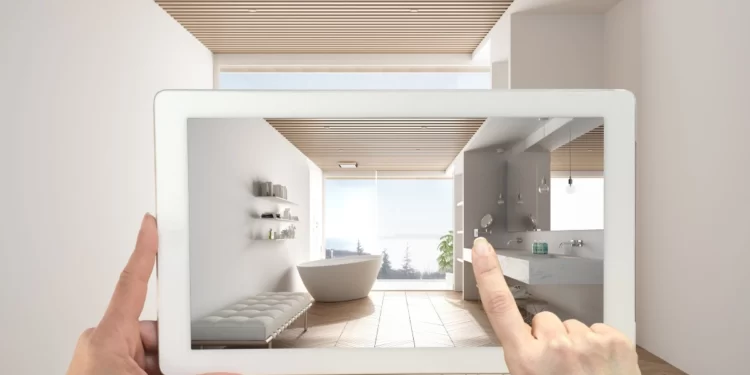Credit: Freepik
As we or our loved ones age, maintaining a safe and accessible living environment becomes increasingly important. Home renovations can play a pivotal role in ensuring that seniors can continue to enjoy their homes comfortably and securely.
Ensuring safety and accessibility is paramount, allowing seniors to maintain their independence and enjoy their homes to the fullest. In fact, research has found that home modifications reduce assistance requirements for seniors and those with disabilities.
Whether you’re a senior or caring for an elderly family member, here are some essential home renovations to consider.
Non-Slip Flooring
Slippery floors are a common cause of accidents among seniors. To enhance safety, consider replacing glossy or worn flooring with non-slip alternatives. Materials like cork, rubber, or textured tiles provide better traction. Area rugs with non-slip backing can also be added to key areas like the bathroom and kitchen. Additionally, promptly repair any loose or damaged flooring to prevent tripping hazards.
Wider Doorways and Hallways
Narrow doorways and tight hallways can be a real challenge for seniors, especially those using mobility aids like walkers or wheelchairs. Widening these areas can dramatically improve accessibility and improve wheelchair access.
While it may seem daunting, a skilled contractor can often accomplish a manageable renovation. The added space not only eases movement but also reduces the risk of accidents and falls.
Kitchen Modifications
The kitchen is a hub of daily activity and should be as safe and accessible as possible. Consider lowering countertops to accommodate wheelchairs or mobility devices. Install pull-out shelves and drawers to eliminate the need for reaching or bending. Lever-style faucet handles and D-shaped cabinet handles are easier to grasp. Adequate task lighting is crucial, too, to ensure seniors can see clearly while cooking or working in the kitchen.
Accessible Bathroom
The bathroom can be a challenging place to navigate safely for seniors with limited mobility or disabilities. Creating an accessible bathroom with a walk-in shower, grab bars, and additional safety features is key to a safe bathing experience. Work with a reputable brand that knows the required guidelines for commercial and residential properties when creating accessible products.
A company like Freedom Showers is more straightforward, with ADA compliant showers made easy, although residential properties don’t need to be ADA compliant. The good news is a reputable, accessible products provider is aware of the requirements to make a residential property bathroom accessible. These walk-in showers provide a safe and convenient bathing solution for individuals with reduced mobility and typically have low or zero-threshold entries, eliminating the need to step over a high barrier, which can lead to slips and falls. They often include built-in seating and grab bars for added support, making showering more accessible and secure for seniors.
Stair Lifts or Ramps
For homes with stairs, mobility can be a real challenge. Installing a stair lift can make upper levels accessible without strenuous climbing. Alternatively, consider adding ramps to entrances if you or your loved one uses a wheelchair or walker. These ramps should be gently sloped with handrails for added stability.
Creating a safe and accessible living environment for seniors is a labor of love that can significantly improve their quality of life. By implementing these essential home renovations, you can ensure that your home remains a comfortable and secure haven as you or your loved ones age gracefully.







